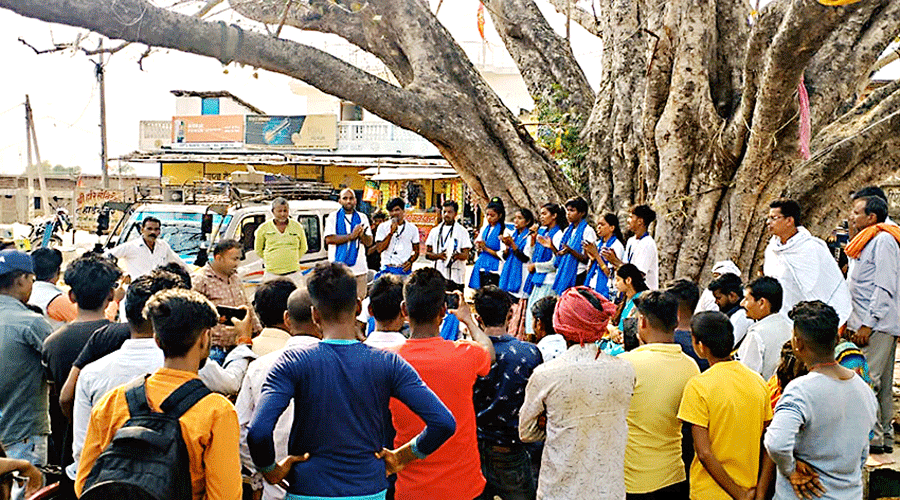A public meeting at a remote block headquarters in Jharkhand has been organised on April 13 to protest against the single-teacher schools in the state that may have a widespread impact.
Economist Jean Dreze and NREGA watch convener James Herenj, in a joint statement, said the meeting would not only protest against single-teacher schools but also demand compliance with the provision of the Right to Education Act.
There would be a rally and a public meeting organised by Sanyukt Gram Sabha Manch in association with Bharat Gyan Vigyan Samiti (BGVS) that will be attended by the residents of 15 villages of Garu block in Latehar district, particularly the students, guardians and members of school management committees, to discuss the problems of such schools.
“Jharkhand is among such states that have a shortage of teachers and a high proportion of single-teacher schools,” Dreze informed when contacted, adding the Act clearly said that all schools with up to 60 students enrolled in Classes I-V will have two teachers.
Almost half the government-run private schools in Garu block — 19 out of the total 40 to be specific — have only one teacher.
The overall situation in the state is also not satisfactory. Out of the total 35,438 primary schools, 6,904 is single-teacher schools and those account for 19.48 per cent.
“Schools remain closed when the single teachers attached to these schools are absent for some reason or the other,” said Herenj, adding that even otherwise teachers are often engaged in different works other than teaching that are assigned to them.
As a result of all this, primary education in the state has taken a back seat, he further said, explaining the grievances of the villagers.
“To make people aware about this pitiable condition of primary education in the state Bharat Gyan Vigyan Samiti has already brought out two jathas that are currently moving across the state to cover 20 out of the total 24 districts,” informed BGVS national secretary Kashinath Chatterjee, adding the volunteers accompanying the jathas were enacting skits highlighting the problems at the public meetings they were organising for the purpose.
“Though the Right to Education Act provided education for all children below the age of 14 years, its implementation remains unfulfilled due to this problem,” he further said, adding the merger of primary and middle schools that took place in Jharkhand a few years ago also resulted in the closure of5,700 schools.
This aggravated the problem as many children dropped out as they found it difficult to attend their new schools which were often located at a distance from their homes, he said.










